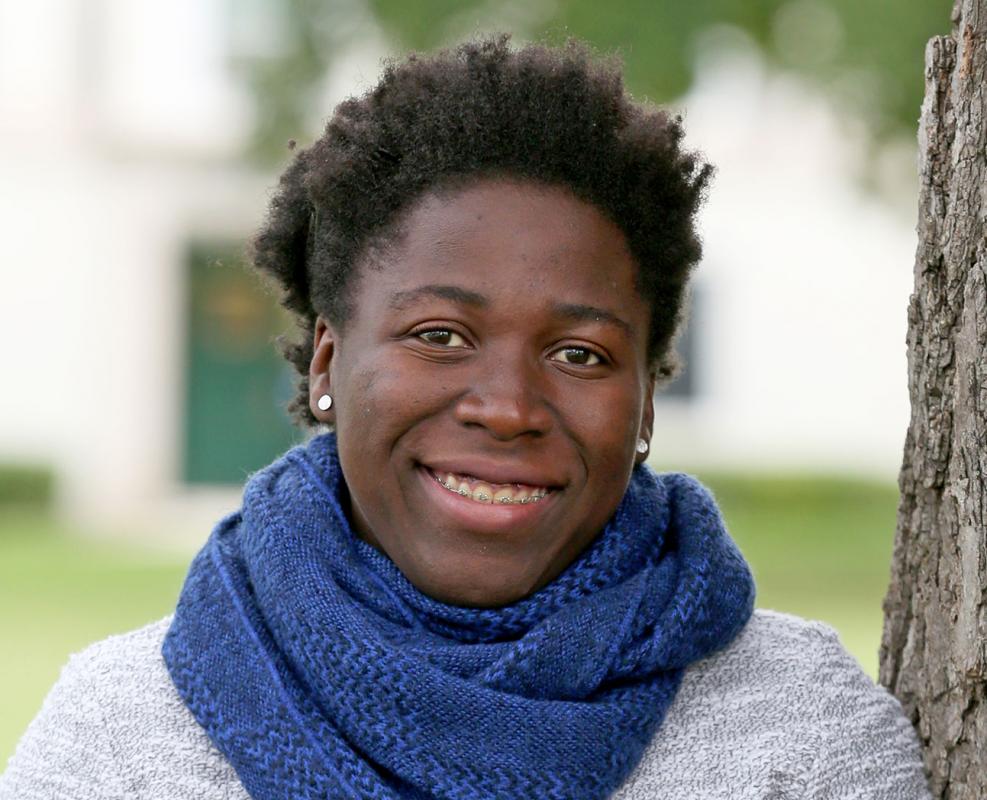This summer, Emmanuela Oppong ’19 will return to her native Ghana to help children living in an orphanage learn sustainable skills to better prepare them for life.
Called “Stitching Talents,” Oppong’s project will create a vocational school where children will learn tailoring, crocheting, knitting, cloth printing and dyeing, shoemaking and other skills.
Oppong is the latest Union student to win a Kathryn Wasserman Davis Projects for Peace award.
Now in its 12th year, the Davis Projects for Peace is an invitation to undergraduates to design grassroots projects that they will implement during the summer. The objective is to encourage and support today's motivated youth to create and try out their ideas for building peace. Each project is funded with a $10,000 grant.
“Peace to me is providing orphans in Ghana – who would otherwise be overlooked and ultimately trapped in poverty because of a lack of skills – education and employment options that will give them opportunities to support themselves,” said Oppong.
It’s been a busy awards season this spring for Oppong, who is known as Ella on campus. She recently won a prestigious Harry S. Truman Scholarship. Recipients receive a $30,000 scholarship toward graduate school and the opportunity to participate in professional development programming to help prepare them for careers in public service leadership.
Emmanuela Oppong ’19
Major: Bioengineering
Project title: Stitching Talents
Description: “In my home country of Ghana, there are approximately 1.1 million children who have either lost one or both parents from diseases like malaria and AIDS. Many roam the main city, Accra, where the economy is rising and money flows in, but it is not enough to offer shelter or education for these children. I strongly identify with the children of Ghana who go without, and I want to help provide them opportunities which will lead to peace in their lives. After researching the Egyam Orphanage—a facility that supports about 80 children in the Western region of Ghana—I connected with the director, Mr. Payne, and proposed building a school for an inclusive educational project. This school will spearhead projects that equip students and other children in the neighborhood with useful, hands-on skills, in addition to their regular education. The “Stitching Talents” program will establish a sustainable vocational school. However, it is not the typical vocational school where the families of the students have to pay apprenticeship fees. It will be free. Through “Stitching Talents,” students will learn: tailoring, crocheting, knitting, cloth printing and dyeing, shoemaking and entrepreneurial skills from established tailors, business owners and traditional artisans. After the apprenticeship and certification, the experienced students can pass on their knowledge and skills to their peers, at no cost. These profitable and productive skills can provide students an alternative revenue source, such as opening a small clothing store—which is a very lucrative enterprise in Ghana. “Stitching Talents” will provide a buffer for the young women and men of Ghana that ensures opportunities and decreases their risk of putting their life, health and the future of their country in danger.
